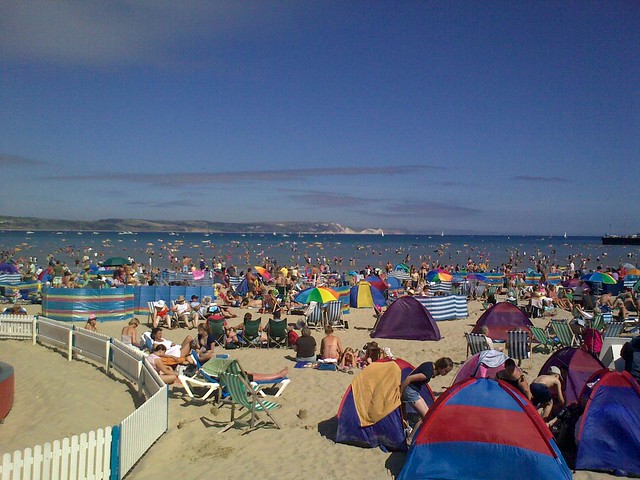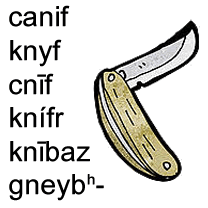I learnt today that an elephant’s trunk in Dutch is a slurf [slʏrf], not to be confused with a smurf. As I like the sound of it, I thought I’d write about it.
Slurf also means proboscis, or jetbridge – the long, flexible tube thing through which you board a plane – also known as a vliegtuigslurf (“aeroplane trunk”). It has another slangy meaning, but I won’t go into that here [source].
It comes from slurven, a variant of slurpen (to slurp) from the Middle Dutch slorpen/slurpen (to slurp), from the Old Dutch *slurpen, from the Proto-Germanic *slarpaną (to sip, slurp), from the Proto-Indo-European *srebʰ-/*srobʰ- (to sip, slurp, gulp). The English word slurp comes from the same root, via the Middle Dutch [source], as does the word absorb, via the Latin absorbeō (swallow up) [source].
Elephants are good swimmers and use their trunks as snorkels, a word that comes from the German Schnorchel, which is related to schnarchen (to snore). It refers both to snorkels used by swimmers to breath under water, and exhaust tubes on diesel submarines. The Dutch word for snorkel is snorkel, and was borrowed from English [source].
The English words snort and snark come from the same root as the German schnarchen: the Proto-Germanic *snarkōną (to snore, snort), from the Proto-Indo-European *(s)nerg- (to sound, murmur, growl) [source].
However, snore comes from the Middle English snoren/fnoren (to snore loudly; snort), from snore/*fnore (snore; snort), from the Old English fnora (snort; sneezing), from the Proto-Germanic *fnuzô, from the Proto-Indo-European *pnew- (to breathe; snort; sneeze) [source]. Sneeze comes from the same root, as do pneumatic, pneumonia and related words [source].











